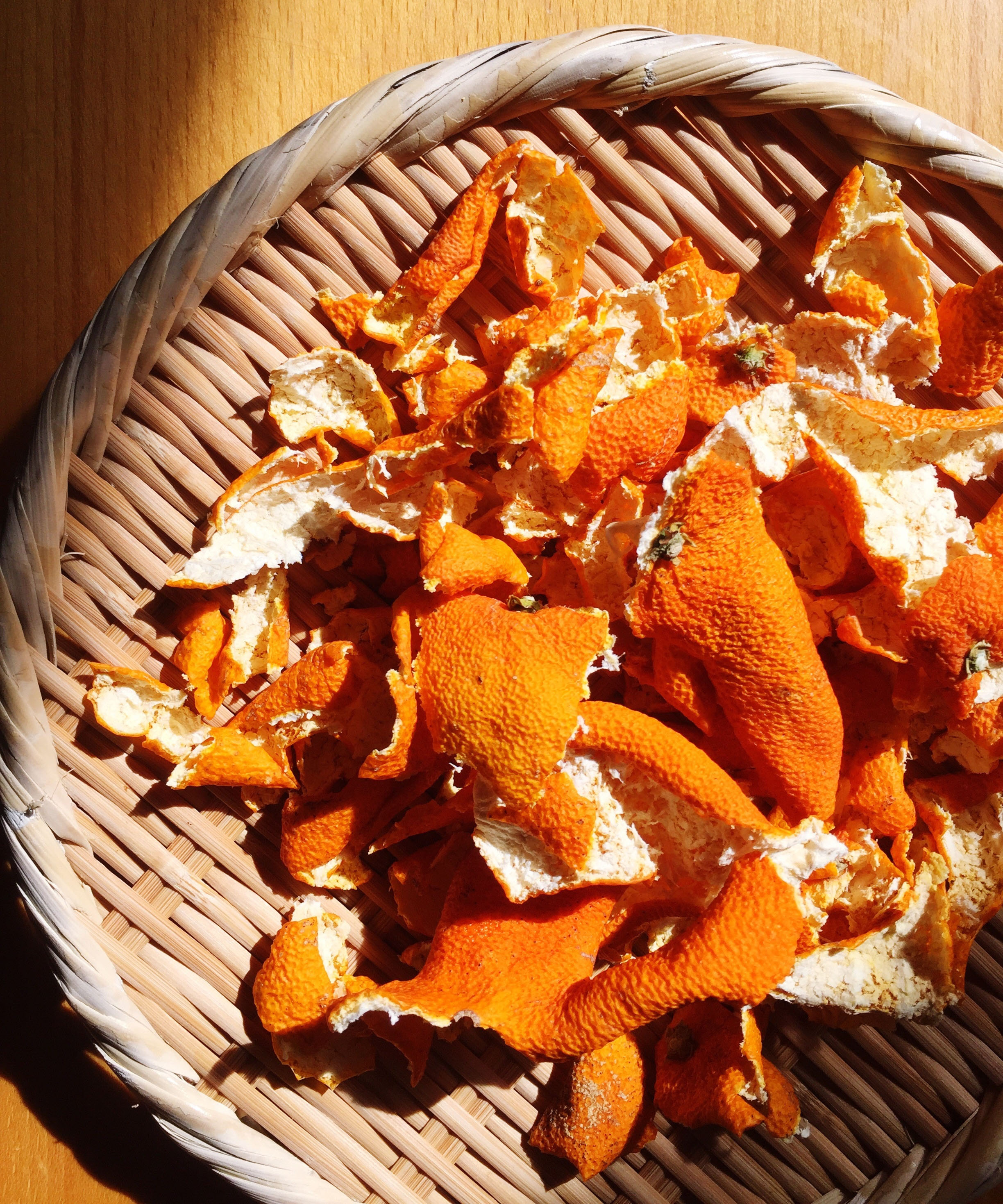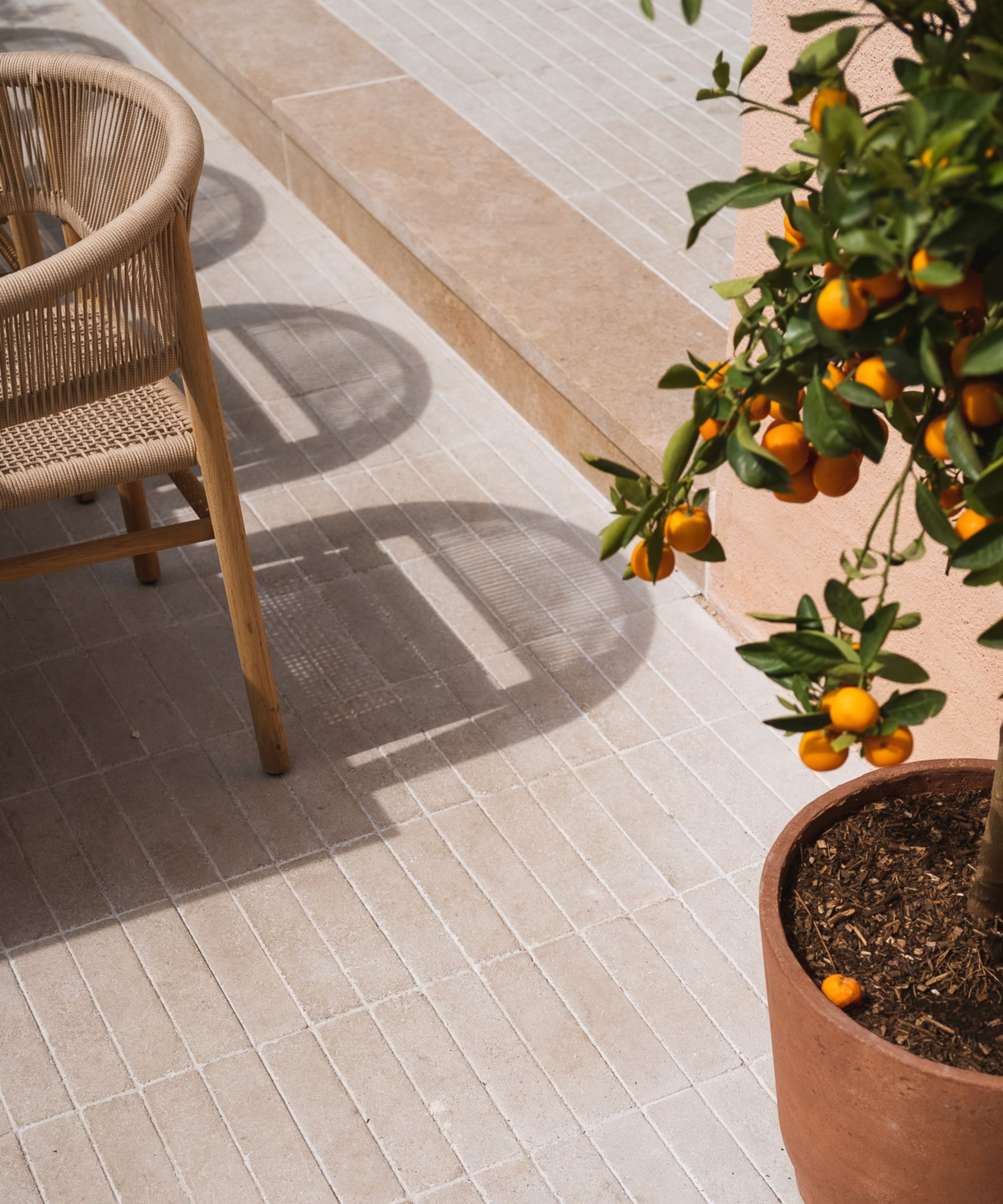
With summer right around the corner, we are faced with the benefit of spending plenty of time outside, whether hosting dinner parties with guests or relaxing in the sun, yet this peace is often disturbed by a swell in the activity of insects. Enter orange peels.
When it comes to keeping your patio space free of unwanted pests, the solution can be as simple and surprising as using orange peels. Not only do these citrus remnants repel insects, but they also offer a plethora of other benefits to your yard, making them an ideal choice for any gardener looking to employ a natural yet effective method to banish pests.
This patio idea may appear unconventional, but it is an effective way to maintain your exteriors this springtime (and beyond) – and it has been approved by those in the know. This is how to use orange peel to deter pests, for good.
Why orange peels deter pests
'We know that spices can deter common garden pests, but citrus is also a pretty common natural repellent for all types of nuisance bugs,' says Brett Bennett, director of operations at PURCOR Pest Solutions. 'Using orange peels around your patio can be a surprisingly effective method for keeping pest insects like flies, and mosquitoes away from your outdoor spaces.'
Its a natural deterrent

'The strong, citrus scent of orange peels is unappealing to many common garden pests, including mosquitoes, flies, and ants. These peels contain limonene, a natural chemical that is toxic to insects yet harmless to plants and animals, making it an effective insect repellent,' explains David Moore, board-certified entomologist and manager of technical services at Dodson Pest Control.
It also helps mask the natural aromas that attract them. Sense of smell is essential for insects; it's how mosquitoes, flies, hornets, and other pests find their food. While their highly sensitive olfactory system means they can easily locate any food that is left out and so are often drawn to your home, this can also be used to your advantage by employing scents they hate to throw them off the scent trail to your home.
Pros
Eco-friendly: 'Using orange peels as a pest deterrent reduces the need for chemical sprays, contributing to being more sustainable at home,' says David Moore. 'Chemical repellents often contain substances that can be harmful to both the environment and the health of humans and pets.
'By opting for natural solutions like orange peels, you are choosing a safer, non-toxic option that reduces your ecological footprint. This practice aligns well with organic gardening principles and supports a healthier ecosystem within your garden.'
Cost-effective and practical: Orange peels as a method to get rid of pests are cost-effective and, frankly, just quite convenient – especially if you are an avid orange eater.
Instead of buying commercial insect repellents, you can simply use leftovers from your kitchen. This not only saves money but also reduces food waste, aligning with eco-friendly lifestyle choices.
Cons
Can attract other pests: 'Orange peels can attract larger pests like wasps or even rodents if they are not managed properly,' explains David Moore. 'It is crucial to replace the peels regularly and ensure they are not overly abundant, which might invite unwanted animals.
Causes a mess: 'Additionally, while the peels are biodegradable, they should be replaced or removed once they start to mold to maintain the cleanliness and health of your patio and garden spaces.'
How to use orange peel to deter pests
Expert Kevin Rodrigues from Gardening Mentor suggests there are two key ways to bring orange peel into your garden: using a spray or placing chopped-up orange peels near your plants.
1. Create an orange spray

Spreading orange peels around your patio is certainly the easiest way to approach this, however, it can undermine the aesthetics of this space and necessitates regular cleaning to avoid moldy peels littering your space. Luckily, there's a more subtle way to reap the benefits of this technique – a homemade bug spray.
Kevin Rodrigues from Gardening Mentor recommends boiling a few orange peels in a cup of water for ten minutes, then straining the liquid into a spray bottle once cool.
'Spray this every 3-4 days to get rid of pests like slugs, aphids, ants, whiteflies, and fruit flies – and to keep them away,' Kevin says. This option also works equally well indoors, so you can protect your best indoor trees around your home too.
Alternatively, you can pulverize peels in a food processor and then mix the "dust" with water in a spray bottle.
Additionally, for an extra boost, Jeremy Yamaguchi, the CEO of Lawn Love recommends, 'Soaking the peels in white vinegar can create a stronger, more effective spray. Soak them for one to two weeks in a sealed container, then pour the liquid into a spray bottle.'
2. Use chopped up orange peels

Alternatively, you can chop up (or grind) your orange peels into small pieces. By strategically placing dried orange peels around plants, seating areas, and wherever you notice pests lingering and along the patio edges, you can create a pest-free zone without the use of harsh chemicals.
Be sure to replace them once they have dried out.
Gardener Josh Tesolin of RusticWise also urges you to ensure you're placing only the peels and not the orange flesh, as this could have the reverse effect. 'The sugars and juices from orange flesh may actually attract some backyard insects,' Josh warns.
FAQs
Should you use orange peels on your soil?
Oranges are well-known for offering a healthy boost of vitamin C, but their goodness extends far beyond the human body. Experts recommend putting this fruity favorite (or rather, the remains of this fruit) to good use in the yard – where you can use your leftover orange peel to keep pests at bay.
Orange peels are good for plants, as they can help to add nutrients to your soil – aiding in the growth and maintenance of your plants.
'As these peels decompose, they break down into compounds that enrich the soil with nutrients essential for plant growth,' adds David Moore. 'Orange peels add nitrogen, phosphorus, and potassium to the soil – key nutrients that help support the health of your plants. They also help to improve soil texture and water retention.
'Simply chop the peels into small pieces and mix them into the soil around your plants, or bury them a few inches deep to avoid attracting unwanted pests.'
This kitchen garden idea will deter pests and improve your soil's health at the same time.
It's time to think twice before throwing away your orange peel, but remember, with this tip, the timing is key.
In addition to citrus smells, other herbal, and floral scents are great at interfering with insects' ability to smell their food, and they'll generally steer clear of them. So, next time you want to establish it as a pest-free zone, consider natural approaches, such as plants that repel ants, to keep your garden looking great and ensure you can relax without being invaded by creepy crawlies.







